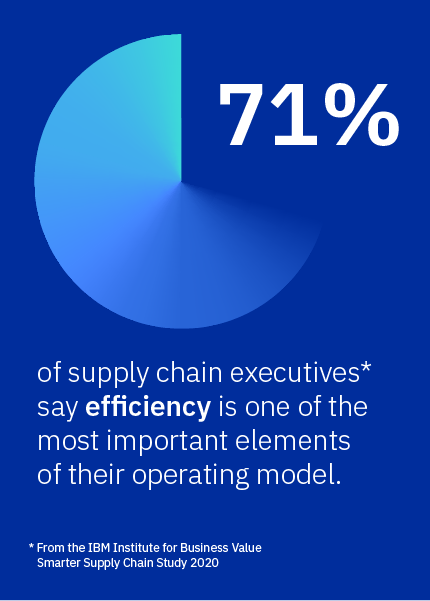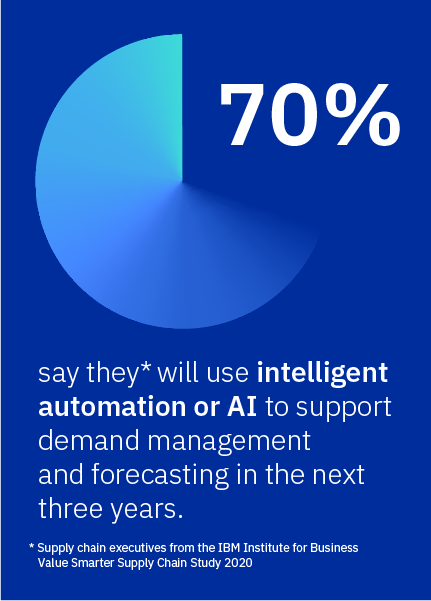Smarter Strategies
Insights and best practices for digital transformation
How AI and Cloud Can Help Build Stronger, Smarter Supply Chains
By Jonathan Wright
 COVID-19 upended supply chains all over the world, forcing leaders in many industries to reassess previously accepted ways of doing business.
COVID-19 upended supply chains all over the world, forcing leaders in many industries to reassess previously accepted ways of doing business.
And because the pandemic awakened many to the reality that future disruptions are as inevitable as they are unpredictable, executives are increasingly looking at technology like AI and cloud to help build resiliency and flexibility into their supply chains.
The new IBM Institute for Business Value “Smarter Supply Chains for an Unpredictable World” report and the latest episode of the “0 to 100 Supply Chain Series” podcast both discuss the sources of supply chain inefficiency and fragility. And they offer advice on how companies can build a stronger and more resilient future.
Problems faced by supply chain professionals include:
Limited visibility: Minimal or nonexistent data can make it next to impossible to see across the supply chain, which can prevent an organization from proactively addressing potential risks.
Volatile, unpredictable demand: Trying to predict future demand using models that rely largely or entirely on historical data can lead to forecasts that are way off the mark.
Outdated workflows: Inefficient, obsolete processes—like inputting data manually and working in silos —can mean missing fast-developing trends, potentially leading to higher operating, carrying and inventory costs.
Slow organizational responsiveness: Complex processes with inconsistent objectives among different players in the ecosystem can mean unnecessary costs, delayed delivery and lower customer satisfaction.
The IBV study shows that executives recognize these problems and are ready to make changes. Seventy percent of those interviewed say they will use intelligent automation or AI to improve forecasting in the next three years. And since demand will remain unpredictable, supply chains need to build both flexibility and efficiency—as reflected in the fact that 71 percent of those interviewed say they are prioritizing efficiency in their operating models.
 Gleaning Insights From Continuous Intelligent Planning
Gleaning Insights From Continuous Intelligent Planning
Technologies like artificial intelligence (AI) and hybrid cloud can help companies shift from being merely reactive to primarily proactive, based on insights developed from a process called Continuous Intelligent Planning (CIP).
With CIP, a company is guided by dynamic data from partners, external sources and IoT devices to see where products are—in real time and in full view—across the world. AI then turns all that unstructured real-time data into actionable insights to help companies both predict and respond to potential disruptions. And with that end-to-end visibility, executives can uncover short-term vulnerabilities and can better forecast long-term decisions.
IBM’s CIP has already helped a number of organizations take better control of their supply chains.
One recent example: A large energy company needed to improve operational performance. After it established a process to improve visibility and better detect vulnerabilities, the company was able to reduce the time it took to generate production plans from hours to minutes.
The science of supply chain forecasting is evolving rapidly. By leveraging AI and cloud technologies companies can become much better prepared for unforeseen events. For a longer discussion of CIP and IBM’s new study, listen to the new “0 to 100 Supply Chain Series” podcast, or read the full IBV report.

Jonathan Wright is Global Leader and VP, Supply Chain Consulting, for IBM Global Business Services.